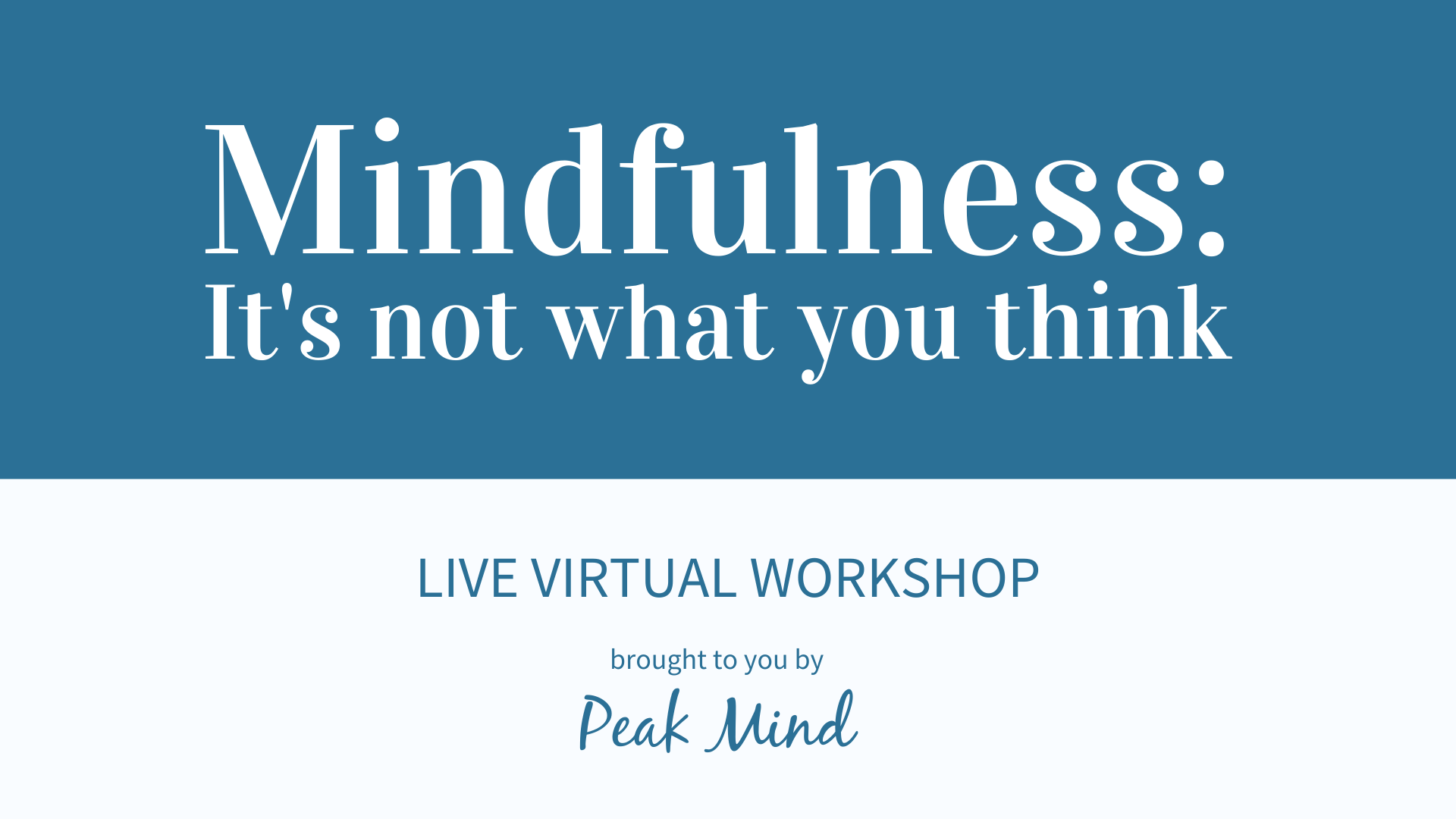Peak Mind Pro: Supporting Employee Mental Health
May 03, 2022
In honor of May being Mental Health Awareness Month, let's talk about supporting employee mental health and, if we're willing to be truthful, how we're failing to do so.
If there is one silver lining of the COVID pandemic, it is that we have been forced to face the fact that mental health is a real issue. And not just for the 1 in 4 adults who has a diagnosable mental health condition at any given point in time. COVID highlighted the reality for so many employees - that they were barely getting by, existing in a maxed out state, teetering on the brink of burn out, exhaustion, and poor psychological wellbeing. Employees are now demanding that mental health support be addressed, and many organizations are, respectably, rising to the challenge.
And a challenge it is.
With typical resources like EAPs being woefully underutilized (utilization rates tend to be 5% or lower), we need to rethink how we support employee mental health.
Fortunately, the message doesn't have to be all gloom and doom. If we're willing to be creative and flexible, psychology has a lot to say about what workplaces can do to support mental health.
We tend to take an individualistic view when it comes to solving problems - this employee is struggling. Let's provide resources that they can elect to use. It's on them to "fix" the problem. That's the old model. What that approach doesn't take into account is the impact that our environments have on our mental health.
If human beings are plants, then our social environments are the soil. If the soil is fertile, then plants thrive. They grow and blossom and show their full potential. When the soil is lacking or, worse, toxic, plants become shriveled versions of themselves.
By nature of how much time we spend working, it is of utmost importance that our work environments be fertile soil. Effective employee mental health support can not be a separate thing, on the other side of barriers like stigma and time constraints. It must be woven into the culture and day-to-day operations, and we need to focus on preventing significant mental health issues before they take root.
Actionable Tips
It's time to get creative and comprehensive in our approach to supporting employee mental health. These tips will help you do that.
1. Make sure employees know about your EAP and other supports before the need arises.
We need to hear things a surprising number of times before they stick, so repetition is key here. Routinely share information about how to access these benefits. Knowing exactly what to do before it needs to be done removes a barrier to care.
2. Provide psychological strength and wellbeing resources to ALL employees.
Organizations are increasingly turning to companies like Peak Mind to provide trainings and workshops for all employees to address wellbeing topics and skills. This not only bakes mental healthcare into the work experience, but it also helps bolster individuals against adversity, boost their resilience, prevents mental health problems, and, importantly, shows in a concrete way that their employer cares about them as a human. Contact us at [email protected]
3. Speaking of caring, take some time to identify the spoken and unspoken messages.
Nurturing environments - ones in which people feel physically and psychologically safe, can express themselves and their needs, and feel supported and valued - are fertile social soil and serve as a huge protector against mental health struggles. What is your workplace environment really like? Pay close attention to the unspoken messages here. It's not enough to give lip service to support. If you say you want employees to take care of themselves then discourage use of vacation time, there's a problematic mixed message there.
4. Check in with your team.
Ask how your employees are doing and listen, really listen (see our Peak Mind Pro March edition for tips). Changes in performance are a signal that something may be going on. Approach changes or declines in performance with curiosity rather than from a punitive stance.
5. Offer flexibility when you can.
Having autonomy (e.g, over work hours or location) when possible gives employees a sense of control, which contributes to psychological wellbeing. It also allows them to structure their day in a way that may alleviate stress.
Additional Resources
The Self-Care Summit is a FREE virtual event, co-hosted by Peak Mind's Dr. April in partnership with Heart Mind Institute. This powerful 7 day event includes sessions from some of the most renown experts, teachers, and leaders. Go beyond bubble baths and massages to learn what effective, comprehensive self-care actually is so you can show up as your best to all facets of your life.

We are pleased to announce our next Quarterly Psych Strength Training workshop, which will be in July. Mindfulness is, perhaps, the closest thing to a psychological superpower - it reduces all of the bad stuff (e.g., anxiety, depression, anger, pain, stress) and increases the good stuff (e.g., happiness, wellbeing, effective decision-making, creativity).
If you're interested in finding out how your team can participate in this powerful learning experience, email us at [email protected].

Interested in continuing to develop your skills? Peak Mind is proud to be a featured speaker at the first Humanity At Work conference hosted by A Deeper Way. This 3 day virtual event will be held May 18-20.
"Good health IS good business.”
- Paul Drechsler

Build psychological strength right from your inbox!
Get actionable information and tools to build psychological strength at home and at work.
We hate SPAM. We will never sell your information, for any reason.






